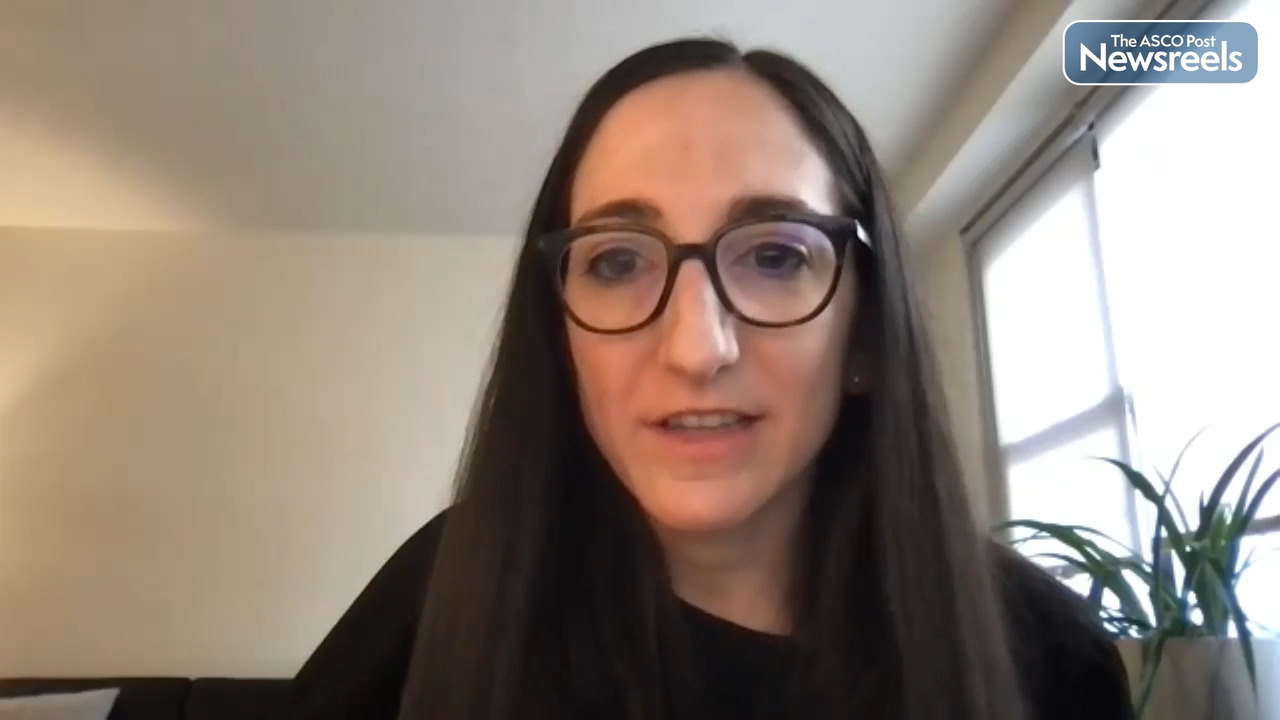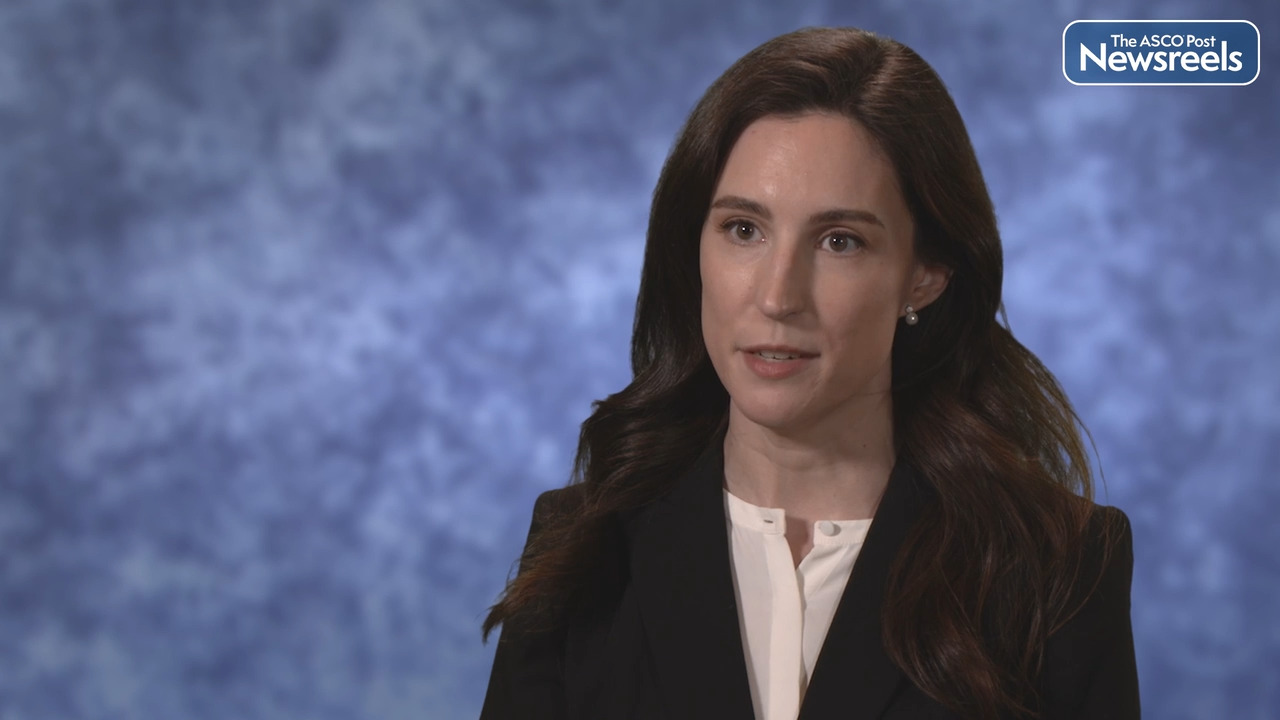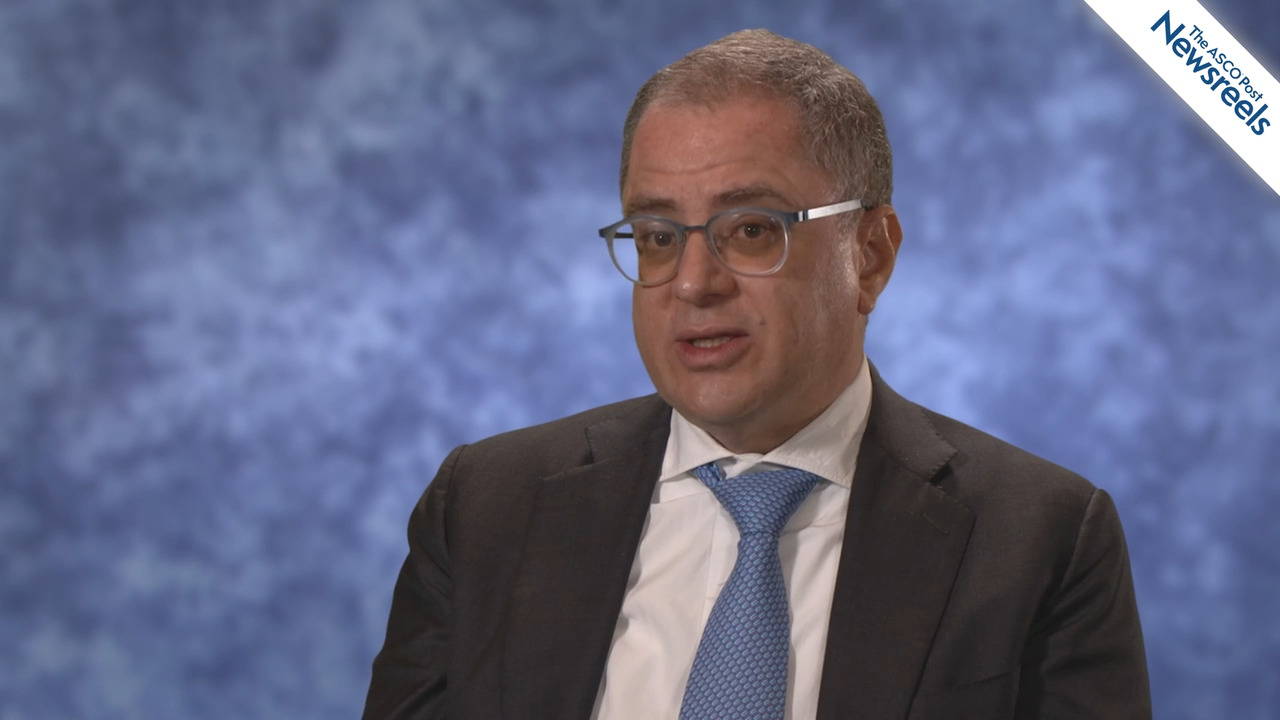Gabriel A. Brooks, MPH, MD, on Colorectal Cancer: Expert Perspective on the Need to Deintensify Oxaliplatin
2022 ASCO Gastrointestinal Cancers Symposium
Gabriel A. Brooks, MPH, MD, of the Norris Cotton Cancer Center, discusses key studies that, when synthesized, suggest the benefits of oxaliplatin may be less than often assumed. The toxicities are well described (especially neuropathy), and the agent should be used cautiously and sparingly beyond the third month of adjuvant treatment for patients with colon cancer and in the elderly or frail with metastatic disease.
The ASCO Post Staff
Melissa Amy Lumish, MD, of Memorial Sloan Kettering Cancer Center, discusses new findings showing a 100% complete response rate to PD-1 blockade alone among the first 11 patients with locally advanced mismatch repair–deficient rectal cancer treated with this approach. None of the patients required chemoradiation or surgery, thus avoiding their attendant morbidities, and so PD-1 blockade may represent a new treatment paradigm. Follow-up on the durability of response is needed (Abstract 16).
The ASCO Post Staff
Francesca Battaglin, MD, of USC Norris Comprehensive Cancer Center and the Keck School of Medicine, discusses findings from one of the largest studies to investigate recurrent neoantigens in upper gastrointestinal cancers. Dr. Battaglin and her team identified peptides with high human leukocyte antigen–binding affinity and an association with a positive tumor inflammation signature in both microsatellite-instable and microsite-stable tumors, suggesting a role for such antigens as potential cancer immunotherapy targets (Abstract 246).
The ASCO Post Staff
Kohei Shitara, MD, of Japan’s National Cancer Center Hospital East, discusses a long-term data follow-up from CheckMate 649, which support the continued use of nivolumab plus chemotherapy as first-line treatment in patients with advanced gastric, gastroesophageal junction, and esophageal adenocarcinomas (Abstract 240).
The ASCO Post Staff
Yu Sunakawa, MD, PhD, of Japan’s St. Marianna University School of Medicine, discusses his findings from the DELIVER trial, which suggest the gut microbiome may predict skin toxicities in patients with advanced gastric cancer who are treated with nivolumab. In addition, some single nucleotide polymorphisms, such as NOTCH1, SEMA4D, NLRC5, and IL-6R genes, may potentially become markers for diarrhea and skin toxicities with this agent.
The ASCO Post Staff
Ghassan K. Abou-Alfa, MD, MBA, of Memorial Sloan Kettering Cancer Center and Weill Medical College at Cornell University, discusses phase III results of the HIMALAYA trial, which showed the combination of a single priming dose of tremelimumab added to durvalumab is superior to sorafenib for patients with unresectable hepatocellular carcinoma (Abstract 379).





